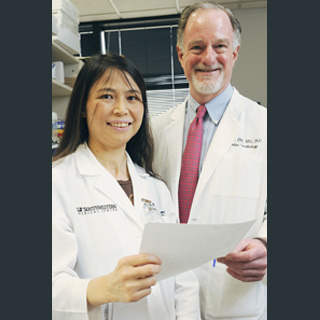
In this research, mice were engineered with overactive autophagy and induced hypertrophy to cause heart failure. The mice were then provided with an HDAC inhibitor known to limit autophagy. Scientists then found that the heart decreased back to near its normal size and the function also went back to normal.
“This is one of those exciting, but rare, examples where an important finding made originally in yeast moved into mouse models and is soon moving to humans. That’s the Holy Grail for a physician-scientist – to translate those sorts of fundamental molecular discoveries through preclinical studies and ultimately in humans,†said Dr. Joseph Hill, chief of cardiology and director of the Harry S. Moss Heart Center at UT Southwestern.
The discovery can seemingly pave way for a new therapeutic strategy in hypertensive heart disease and also promote regression of heart disease. All forms of heart disease are presumed to involve either too much or too little autophagy and it is usually an adaptive process. The research findings may have great importance in the health domain.
The research is published in the Proceedings of the National Academy of Sciences.
